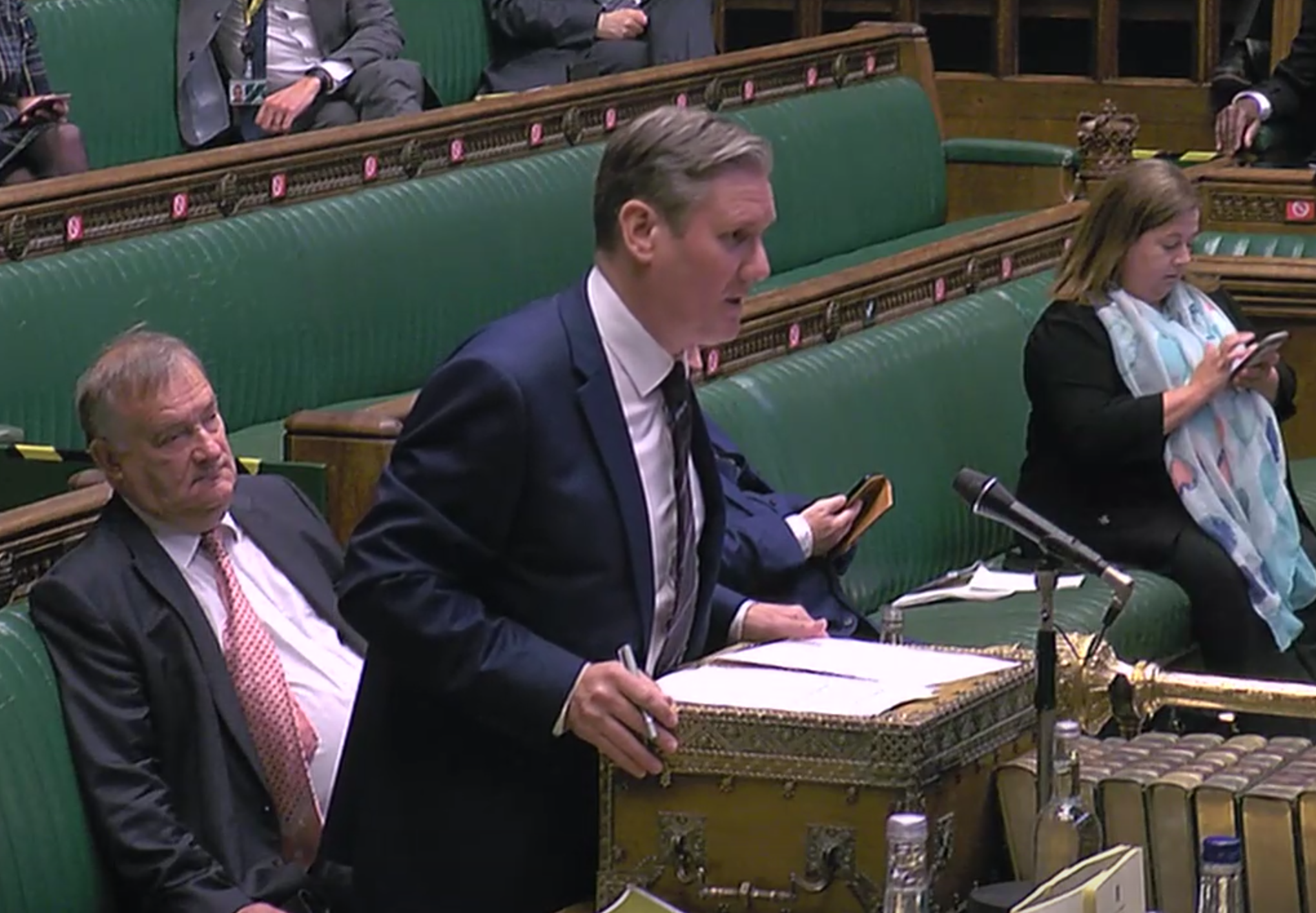Keir Starmer betrayed the green cause at PMQs – tough choices lie ahead
The Labour leader asked for more public subsidy for aviation jobs, which means demanding extra public spending on one of the sectors most implicated in the climate emergency, writes John Rentoul


It is the green part of Jeremy Corbyn’s red-green coalition that Keir Starmer has betrayed first. He demanded more subsidies from the taxpayer to bail out the fossil-fuel-dependent airlines at Prime Minister’s Questions (PMQs).
He didn’t put it like that, naturally. What he asked for was more sectoral support for aviation jobs, which sounds much better, but it means demanding more public spending on one of the sectors most implicated in the climate emergency.
It was a brave choice for an opening question for another reason, which is that there have been reports of differences of view in the shadow cabinet over whether the airlines should just be refuelled with public money, or whether they should be nationalised as well. Starmer is alleged to be sceptical about public ownership, whereas Ed Miliband, the shadow business secretary, is somewhat keener.
Fortunately for Starmer, Boris Johnson chose not to exploit either of his opponent’s weaknesses, and accused Labour of changing its mind on whether it supported the measures brought in by Rishi Sunak, the chancellor, last week.
And yet Starmer showed that the prime minister’s counter-attack got under his skin. I don’t know if this was just for show, but the Labour leader appeared to be properly indignant. “This is just such rhetorical nonsense,” he protested. “It is perfectly proper and right for the opposition to set out the parts of the package where it supports the government and to highlight where there are problems.”
Thus the opening exchanges in the Commons failed miserably to engage with the question: if we want to “build back greener” as the prime minister claimed, should we be giving special treatment to the aviation industry? Labour dodges that question by saying it wants “targeted” help, which is a phrase that polls well not least because it implies spending less public money, whereas it means targeting even more spending on sectors that are worst hit.
As ever, when Labour faces a choice between today’s jobs in polluting industries and the green jobs of the future, it puts today’s jobs first.
And the prime minister is happy to conspire in the pretence that such hard choices can be avoided. Starmer’s attack was followed up by Jack Lopresti, a Conservative MP, who spoke up for the aerospace industry on which 20,000 jobs depend in his constituency, and asked for a scrappage scheme for old and highly polluting aircraft.
Johnson seized on this gratefully: phasing out old aircraft in favour of newer fuel-efficient models makes a hard choice look like an easy one. Of course, he had to overdo it by repeating his ambition of “jet zero”: developing a zero-carbon long-haul aircraft, the chances of which are somewhere between negligible and never.
No wonder Starmer moved on to the safer territory of Johnson’s handling of the coronavirus itself. This was PMQs-by-numbers. Johnson said “our test and trace system is as good or better than anywhere else in the word”, and accused Starmer of talking the country down. That is a line that Harold Macmillan probably used against Hugh Gaitskell in one of the first regular PMQs in 1961.
Starmer caught Johnson out by asking if he had read the report from the Academy of Medical Sciences outlining the “reasonable worst-case scenario” for a second wave of the disease. “I’m aware of it,” said the prime minister, before he wound up with a demeaning prepared line about Starmer having “more briefs than Calvin Klein”.
I love PMQs, and I am glad that it is interesting again after the rhetorical flatlands of the May-Corbyn years, but it has its faults. The failure to engage meaningfully on questions of substance such as green issues and the resort to low-grade one-line putdowns are two of the most glaring.
Join our commenting forum
Join thought-provoking conversations, follow other Independent readers and see their replies
Comments